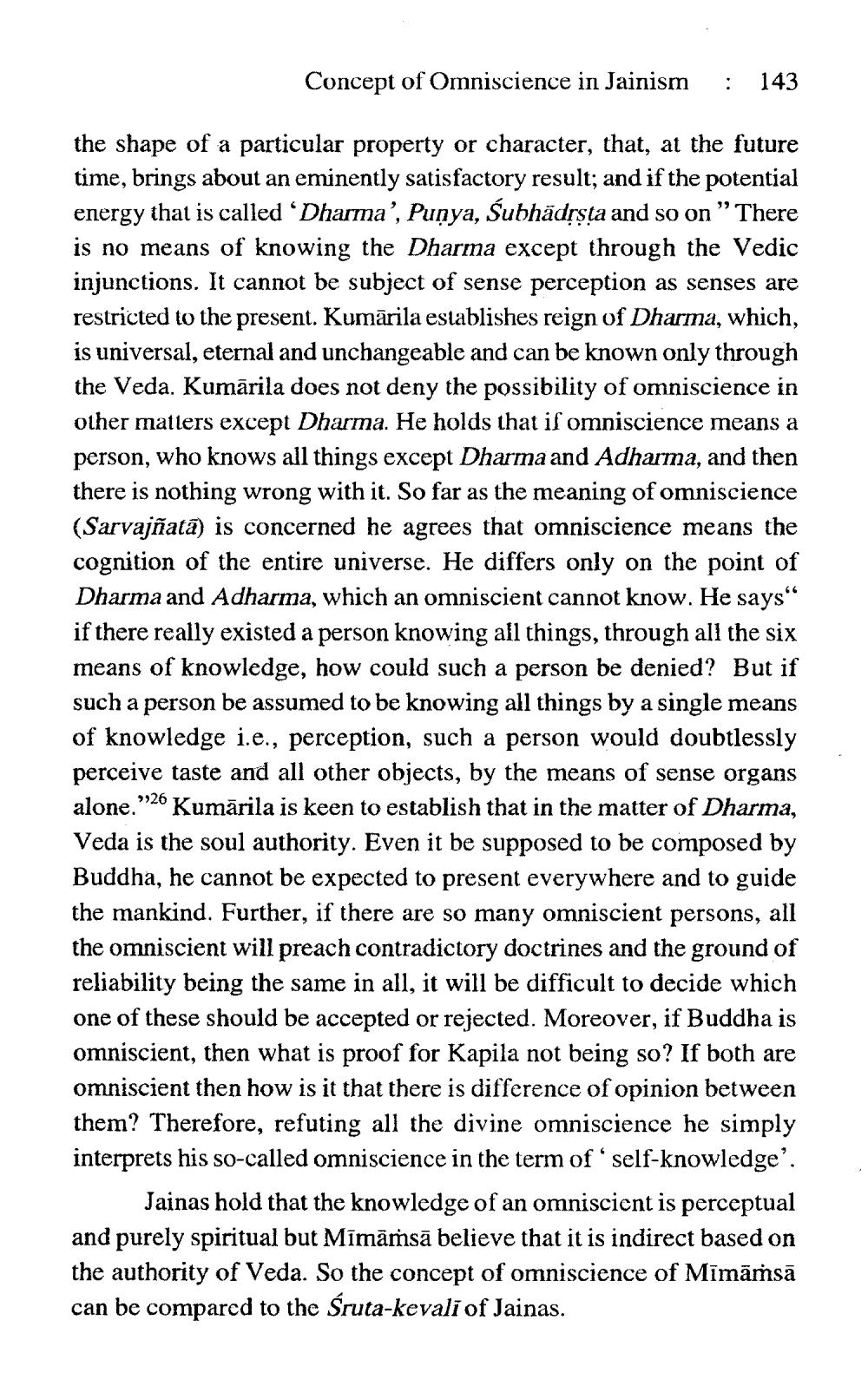________________
Concept of Omniscience in Jainism
: 143
the shape of a particular property or character, that, at the future time, brings about an eminently satisfactory result; and if the potential energy that is called 'Dharma', Punya, Subhädrsta and so on "There is no means of knowing the Dharma except through the Vedic injunctions. It cannot be subject of sense perception as senses are restricted to the present. Kumārila establishes reign of Dharma, which, is universal, eternal and unchangeable and can be known only through the Veda. Kumārila does not deny the possibility of omniscience in other matters except Dharma. He holds that if omniscience means a person, who knows all things except Dharma and Adharma, and then there is nothing wrong with it. So far as the meaning of omniscience (Sarvajñatā) is concerned he agrees that omniscience means the cognition of the entire universe. He differs only on the point of Dharma and Adharma, which an omniscient cannot know. He says" if there really existed a person knowing all things, through all the six means of knowledge, how could such a person be denied? But if such a person be assumed to be knowing all things by a single means of knowledge i.e., perception, such a person would doubtlessly perceive taste and all other objects, by the means of sense organs alone.":26 Kumārila is keen to establish that in the matter of Dharma, Veda is the soul authority. Even it be supposed to be composed by Buddha, he cannot be expected to present everywhere and to guide the mankind. Further, if there are so many omniscient persons, all the omniscient will preach contradictory doctrines and the ground of reliability being the same in all, it will be difficult to decide which one of these should be accepted or rejected. Moreover, if Buddha is omniscient, then what is proof for Kapila not being so? If both are omniscient then how is it that there is difference of opinion between them? Therefore, refuting all the divine omniscience he simply interprets his so-called omniscience in the term of self-knowledge'.
Jainas hold that the knowledge of an omniscient is perceptual and purely spiritual but Mīmāṁsā believe that it is indirect based on the authority of Veda. So the concept of omniscience of Mīmāṁsā can be compared to the Śruta-kevali of Jainas.




